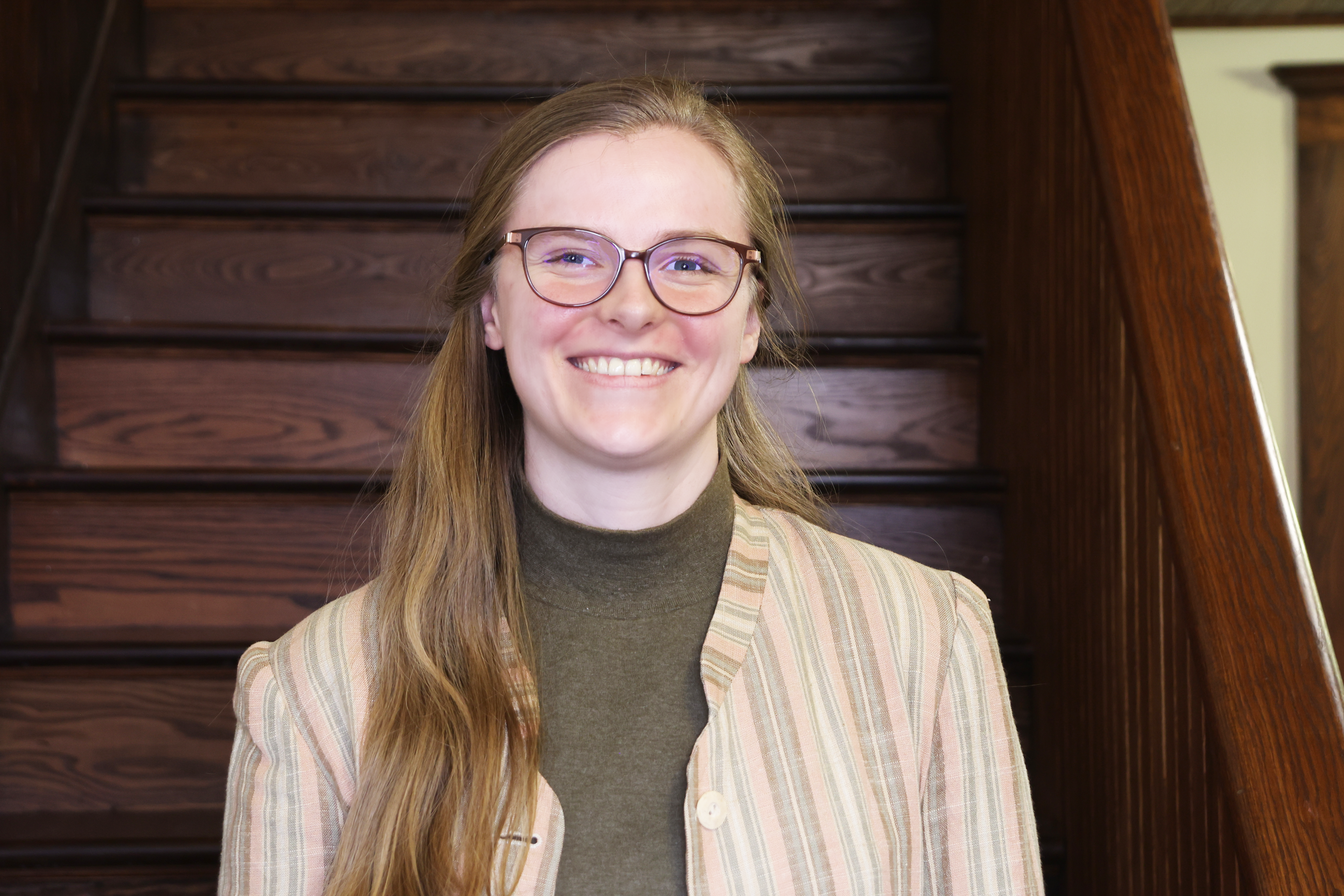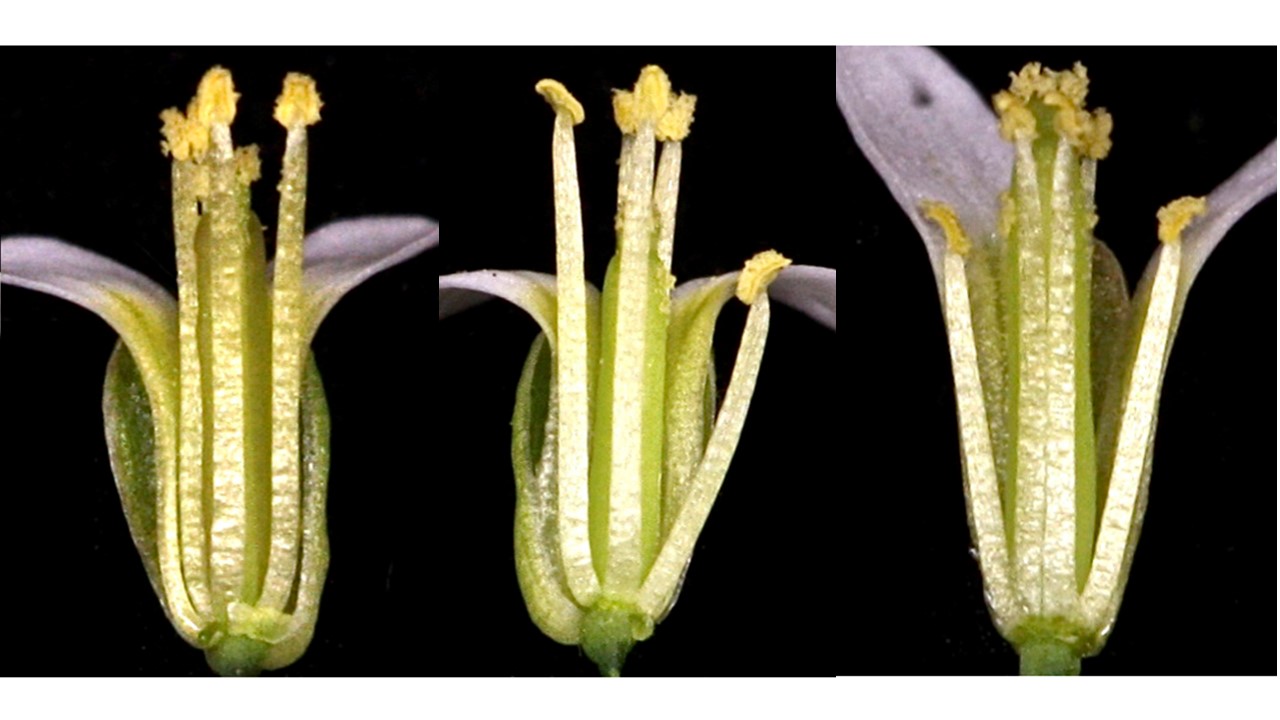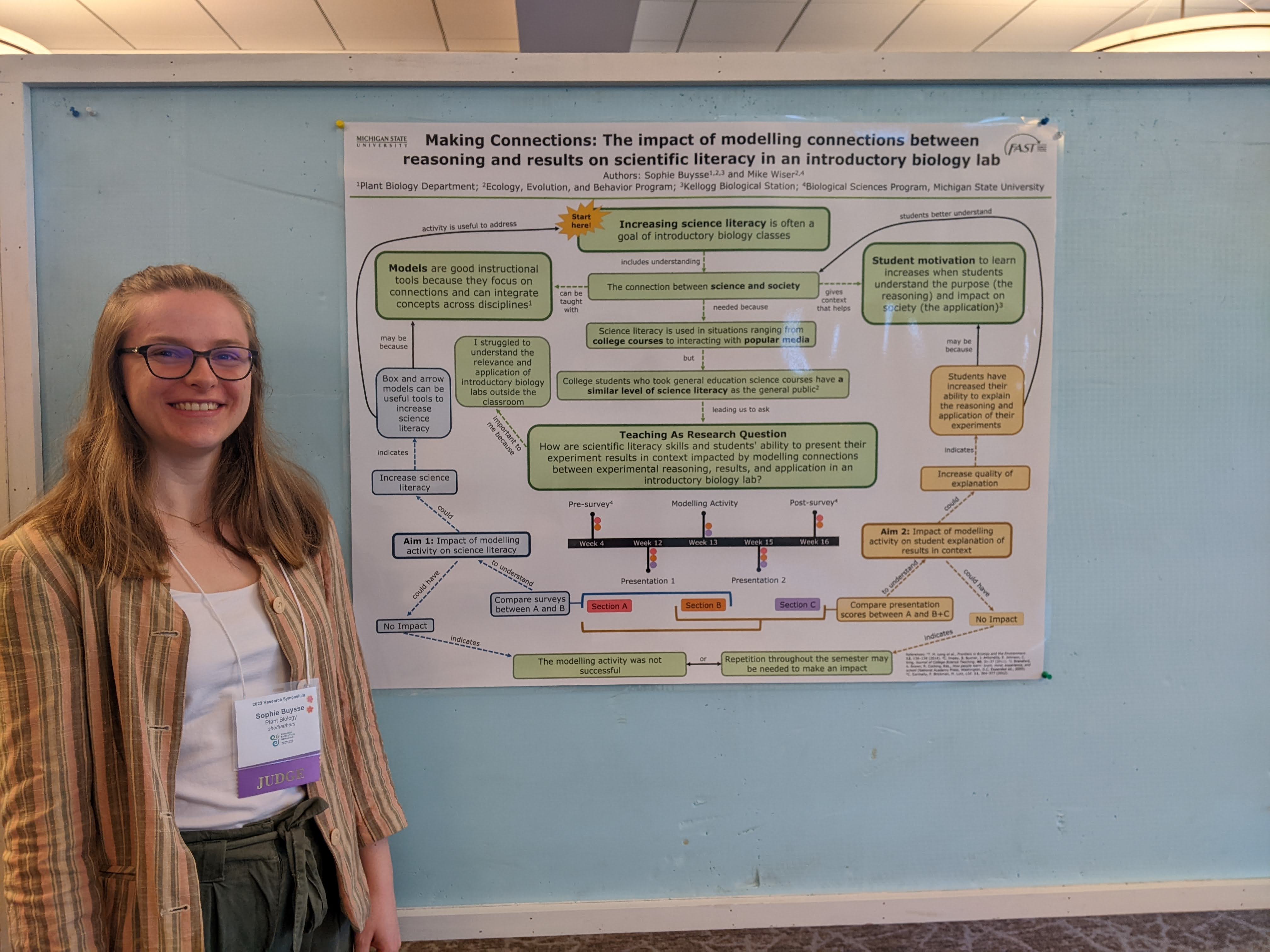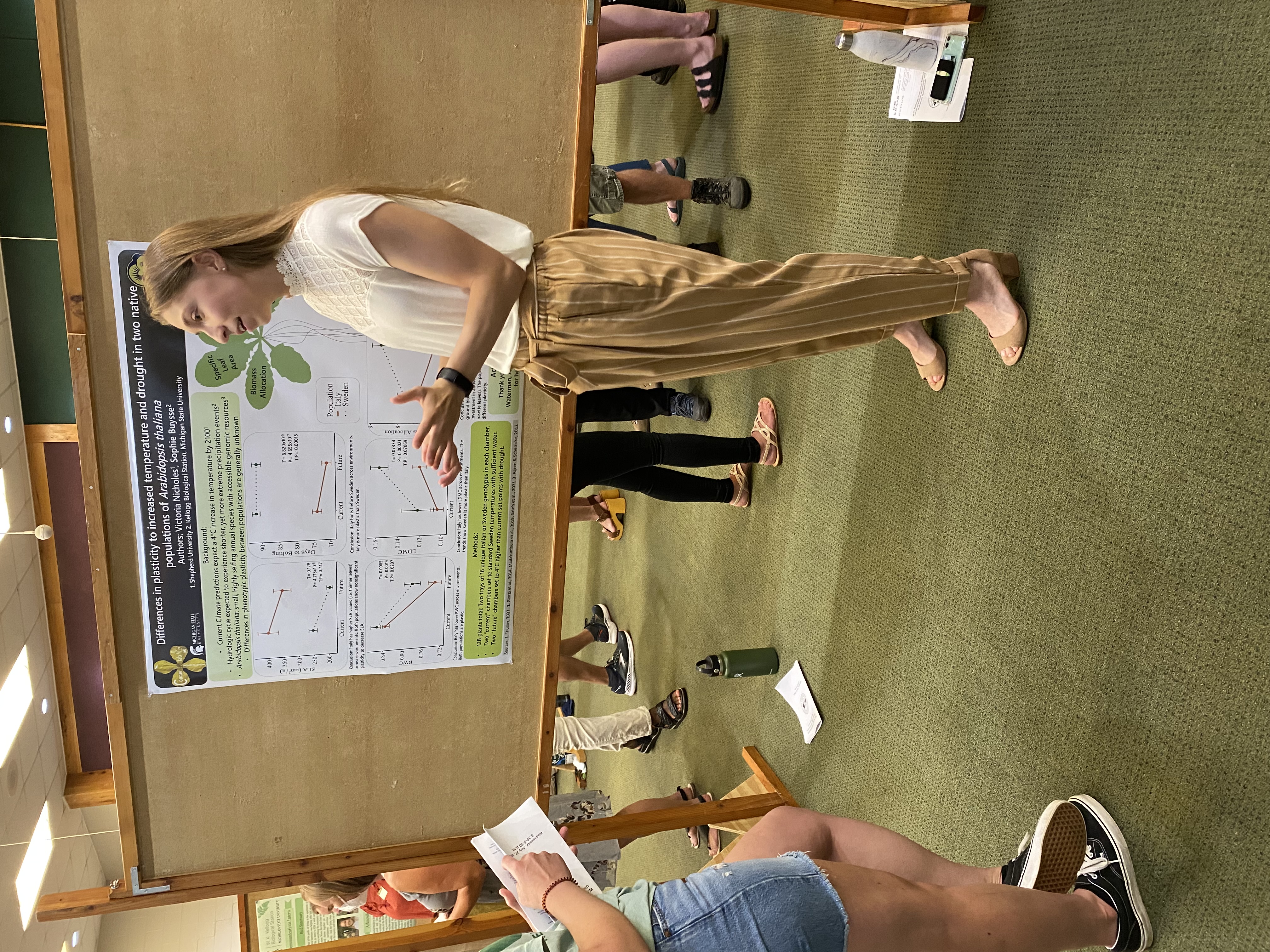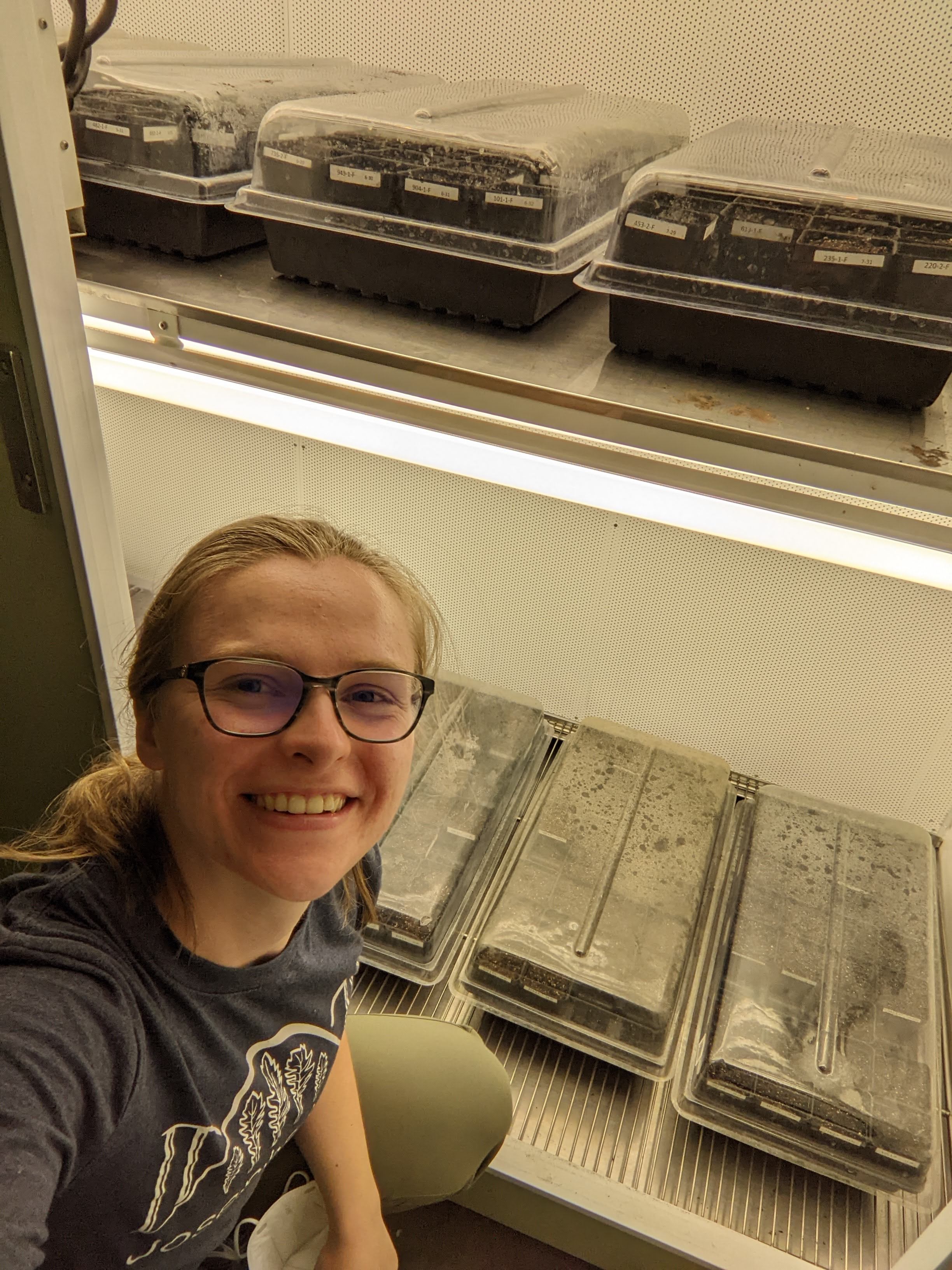
The role of plasticity in adaptation to climate change
I am fascinated by the ability of plants to respond to their environment and adapt to stressful environments. In this project, I am investigating the role of phenotypic plasticity in adpatation to heat and drought by incorporating within and between population variation in plasticity, selection gradients for plasticity, and quantitative trait loci (QTL) analysis to start to uncover the genetic architecture of plasticity for multiple traits. This project is composed of chamber common gardens where I grew native genotypes and recombinant inbred lines of A. thaliana in simulated current and future environments while measuring a suite of traits related to phenology, drought response, and fitness. I aim to answer three main questions:
1. Is there population differentiation for plasticity between locally adapted populations from Sweden and Italy? (so far, not really. See my preprint on biorxiv.)
2. Is plasticity adaptive in my simulated future environment? (so far, it depends on the trait and the population)
3. Do recombinant inbred lines, which are all a combination of Sweden and Italy genes, have greater fitness than their parents indicating gene flow could be beneficial (yes! 464/527 have higher fitness than the Swedish parent and 93/527 have greater fitness than the Italian parent)
4. Are QTL underlying drought response traits and fitness similar in the current and future environments? Can we identify QTL for plasticity? (for flowering time, we identify both QTL unique to each treatment and QTL for flowering time plasticity)
The results from this project will increase our knowledge of adaptive plasticity and the genetic loci underlying plasticity. They will also be applicable in understanding the effect of assisted migration and predicting population presistence to changing climates. To grow enough plants, this project required growing and phenotyping ~3,500 plants over four blocks. The final block was completed in May 2025! I am very thankful to the undergraduate researchers who made this project possible and am excited for results to come soon.
Check out the work I've presented thus far on this project:
Evolution 2022 Poster - pilot study results
Evolution 2023 Poster - first results from RILs
I presented results on leaf number plasticity at Evolution 2025 on June 22, 2025.
